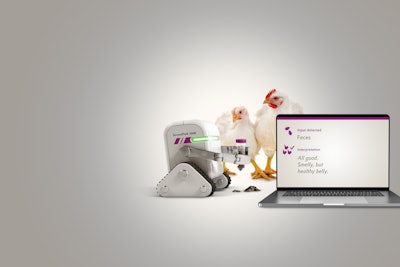
‘Big data’ has been making headlines for some time now, but it’s not always clear how and why it impacts the industry, even if you know what it is.
Big data, as the name suggests, is all about having large volumes of information. The more the better, you may think, as it will aid insights, and improve products and processes. However, once you reach high levels of data it can be difficult to manage – an Excel spreadsheet just won’t do it anymore.
So how is big data applicable to food production and how can we make the most of it? A whole variety of sensors are now available on the market which can provide really in-depth information about what is happening in our barns and hatcheries, for example.
With these sensors, animal health can be continuously monitored. The data will show whether the flock’s body temperature is at the right level or if the animals are eating and drinking enough, helping to ensure early diagnosis of any issues and ensure target weights and size are met.
Sensors and microphones provide information, while specialized software, such as Porphyrio, analyzes the collected data. These innovative management tools are based on scientific self-learning algorithms. They use data from barns and hatcheries to further improve and optimize production and business processes. They are designed to support managers in taking proper decisions concerning their daily business, as well as the strategic decisions they are facing. In the event of deviations from the target or other requirements a support system comprising self-learning artificial intelligence components will help.
In time, consumers will get access to data as well providing a wealth of important information that creates transparency about animal farming, breeding and slaughtering. It will most likely take some more time to establish these conditions, but the researchers and developers of Evonik have already started to implement a Precision Livestock Farming concept using this data and tools in poultry production.
In the future, chicken production could be fully digitalized using intelligent sensors and integrated systems to process big data and generate optimal production conditions.
Johann Fickler, Vice President, Precision Livestock Farming at Evonik











